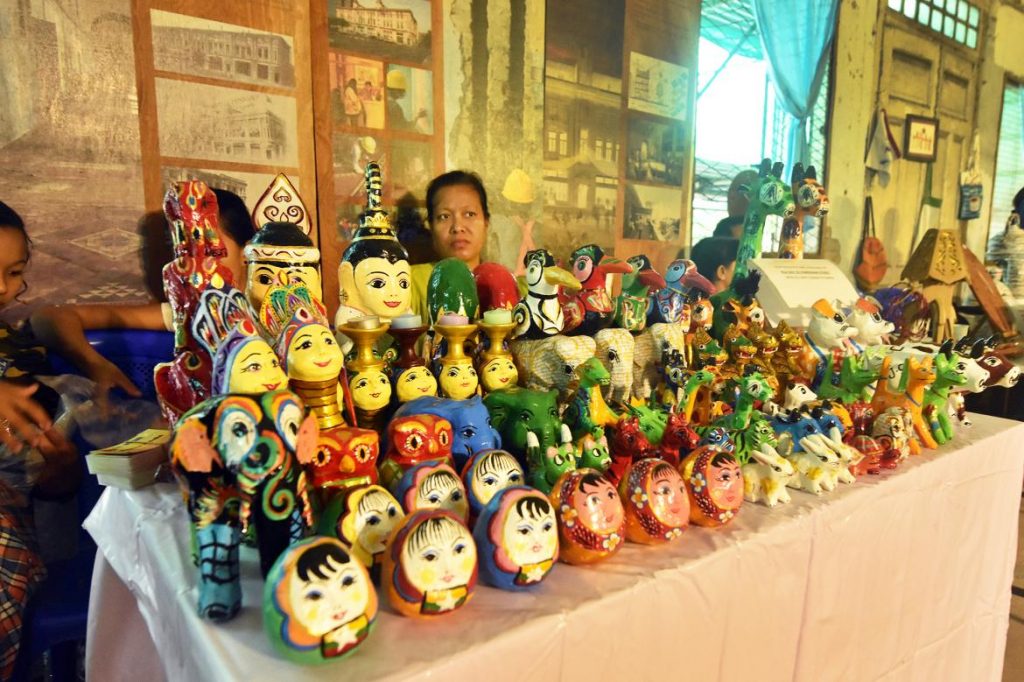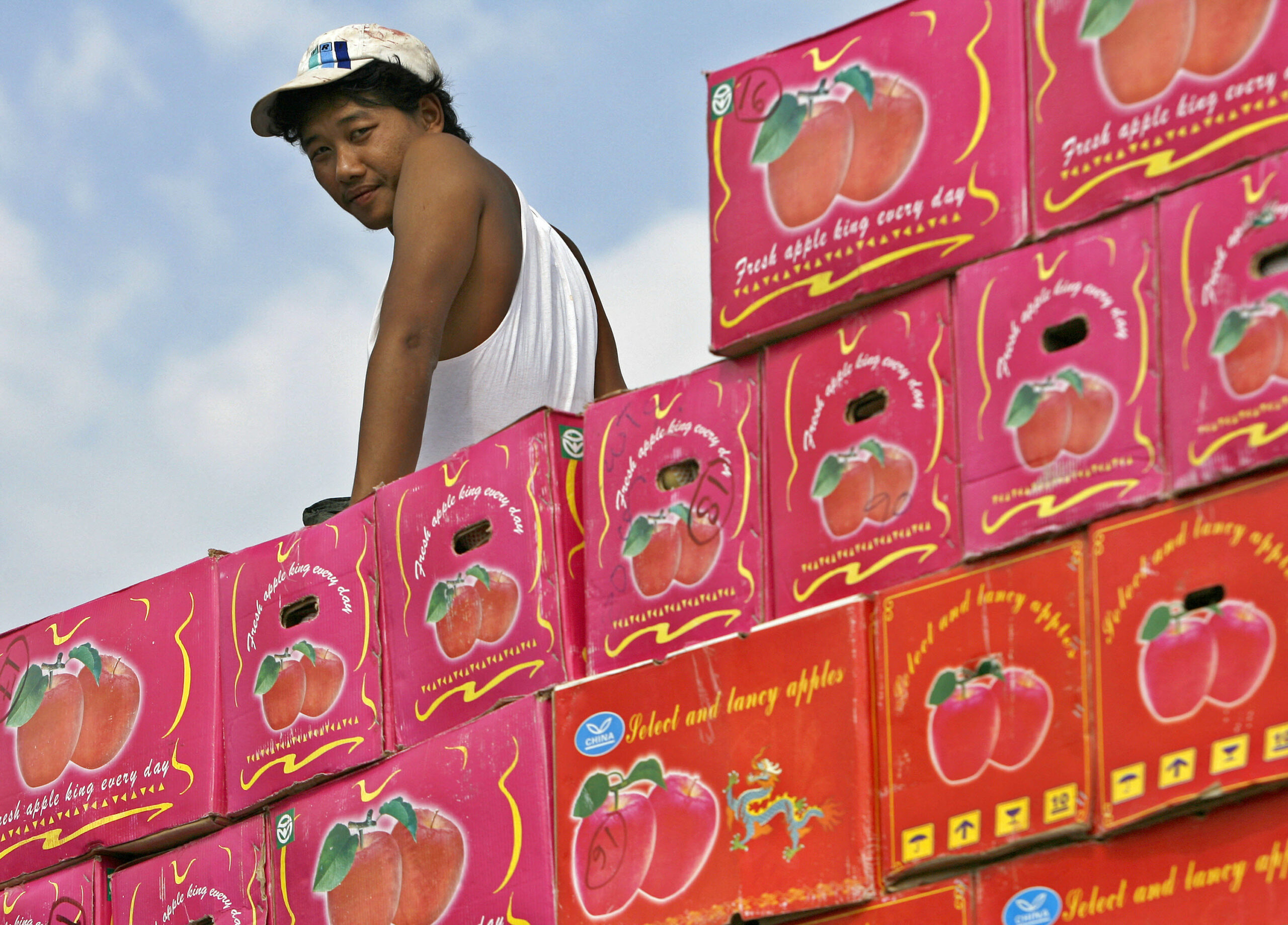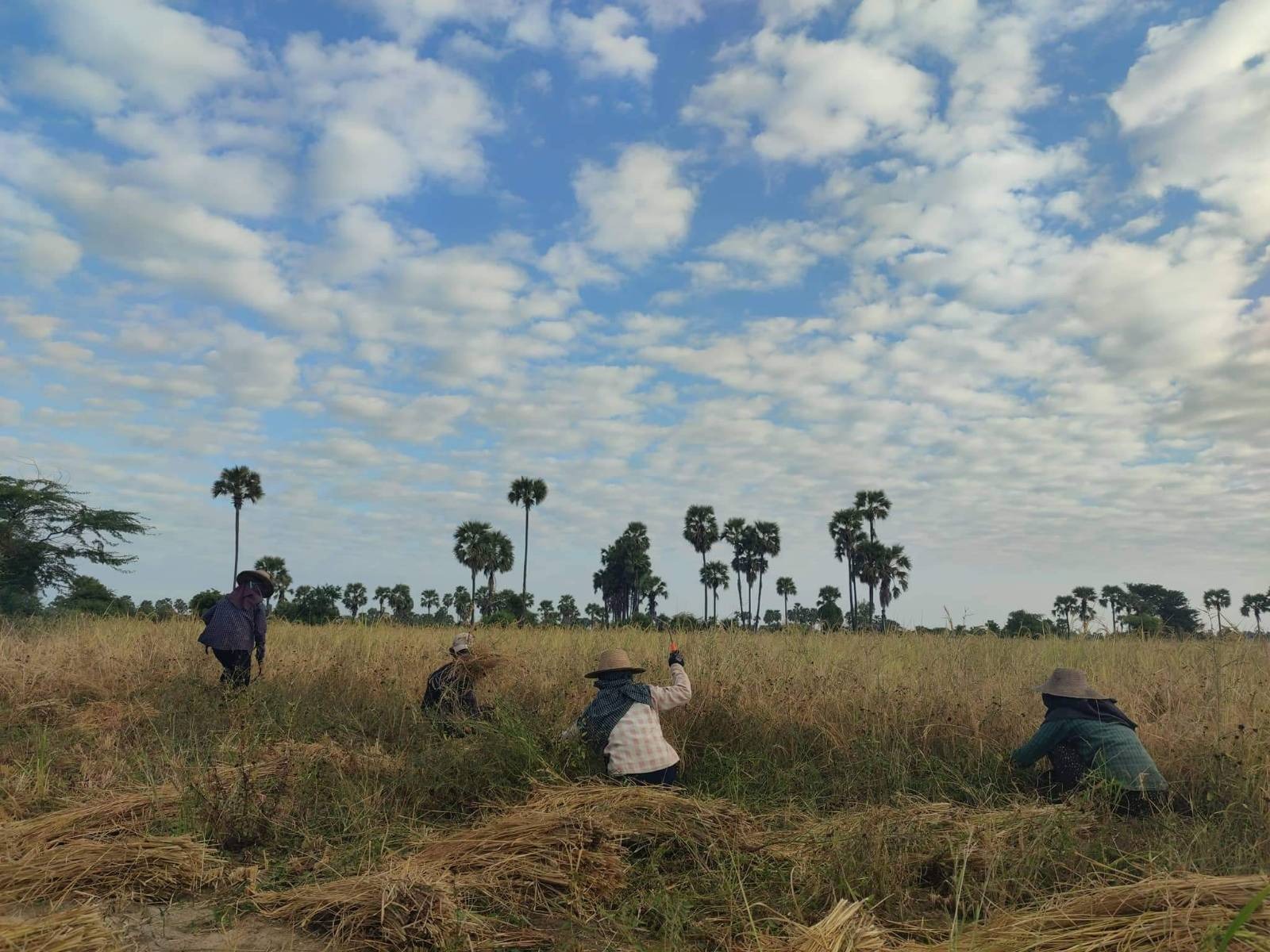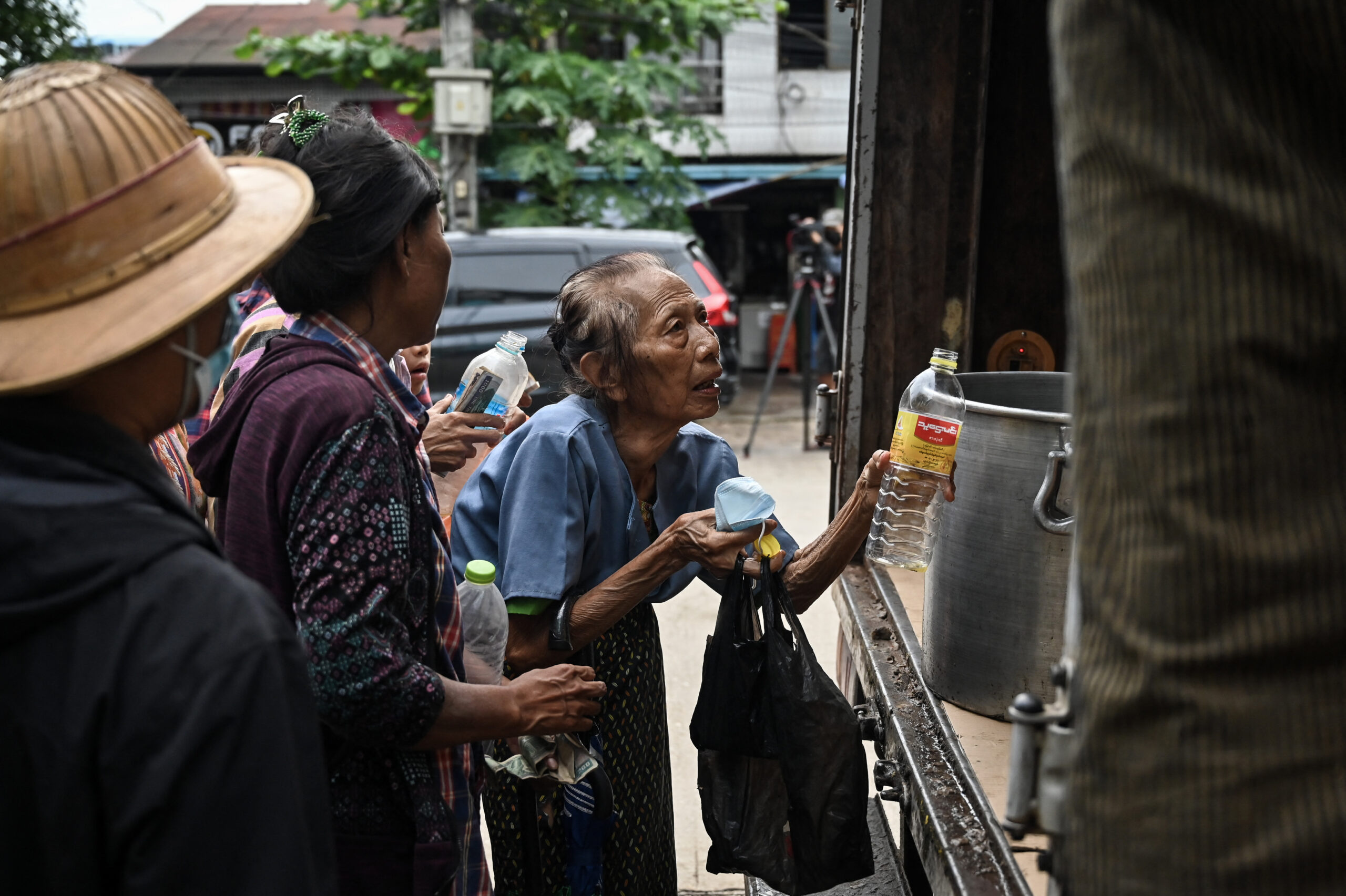The Myanmar Artisan Toolkit is designed to help producers in the craft and sector – the country’s fourth-largest industry, employing around 2.4 million people – build their businesses and access local and international markets.
By SHARON PUN | FRONTIER
“HOW MUCH does it cost?” a buyer asked. “As you like,” the vendor replied.
Overhearing this casual exchange at the market, Ms Randi Wagner, the communications and design manager at social enterprise Hla Day, was shocked.
This random pricing implied a lack of business knowledge that was bad for artisans, she thought. So she decided to spark a change in the industry.
The craft and trade sector is the fourth-largest in Myanmar, employing around 2.4 million people, according to the 2014 census, while research company Technavio expects the global handicrafts market to grow to over US$707 billion by next year.
Support more independent journalism like this. Sign up to be a Frontier member.
This creates an opportunity for local artisans, but Wagner believes there is a business skills gap. In the hope of changing this, she was involved last September in the launch of the Myanmar Artisan Toolkit, an open-access guide for artisans.
Developed by Hla Day and NGOs Turquoise Mountain and Lutheran World Federation, the story-based toolkit aims to strengthen business knowledge and is also intended as a reference for trainers. It is organised into seven chapters, each of which explores a separate skill.
The developers have created a network of trainers to explain the toolkit to artisans. As of March, there were eight trainers working with 174 artisans across Ayeyarwady and Yangon regions. The toolkit has also been downloaded hundreds of times, Wagner said.
Last month, the project entered a new phase, with the launch of Myanmar Artisan Toolkit Level 2. This takes a more straightforward approach to convey business concepts to more experienced artisans and help them compete in local, regional and international markets.
The launch event, in Yangon’s former Tourist Burma building, included a pop-up craft market and a panel discussion between industry leaders and organisations in the sector.
Daw Ney Chi, arts programme manager at the British Council in Myanmar, said in the discussion that Myanmar artisans have strong sewing and handicraft skills but lack access to markets.
She suggested that instead of programmes focusing on design skills, it would be more effective to teach business concepts such as quality control and pricing.
Myanmar Artisan Toolkit trainer Daw Yin Mon explained that the guide provides easy tools and templates to help artisans generate new ideas and enable their brands to grow. She said it could also help them to enter the international market.
Traditional crafts are becoming more popular, said Ms Ilona Van De Braak, a pottery artist from the Netherlands. She stressed the importance of documenting traditional cultures to keep them alive and suggested that programs bringing artisans together could enable them to share knowledge and discover new information together.
In an interview with Frontier, Wagner said the toolkit had been a success, but like any project, it would take time and patience before its full potential was realised.
“Great content doesn’t mean anything if it is not delivered,” she said. The three developers are now looking for additional partners to bring the toolkit to artisans in other rural areas.
The guide does not belong to anyone, Wagner said; it can be shared and reinvented and used for other training programmes. Some of the trainers have already developed their own tools, while others make use of social media platforms to spread the word.
She said she looks forward to collaboration with more local artisans and trainers, with the goal of raising standards across the entire industry.







